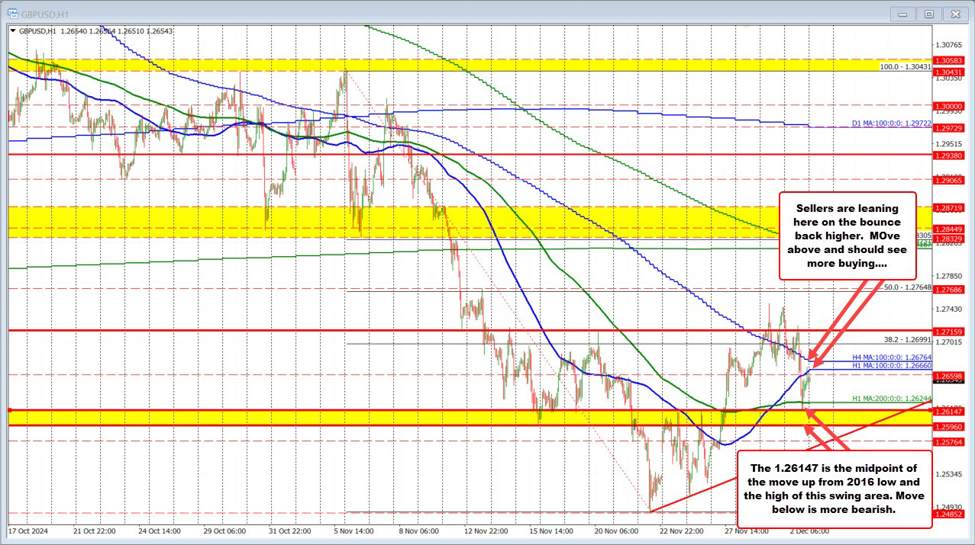The GBP/USD moved lower on Monday after peaking near a swing area around 1.27159, where sellers emerged to cap the upside. The subsequent decline saw the pair break below several key technical levels, including the 100-bar moving average on the 4-hour chart (1.2676), the 100-hour moving average (1.2666), and the 200-hour moving average (1.26244).
The day’s low was recorded at 1.26164, just shy of the upper boundary of a key swing area between 1.2596 and 1.26147. Notably, the level 1.26147 also coincides with the 50% retracement of the move from the 2023 low to the 2024 high. The bounce from this level was a critical hold for buyers, providing temporary relief and halting further downside.
Since then, the price has moved back toward the previously broken moving averages, which now act as resistance. The 100-hour and 100-bar moving averages, clustered between 1.2666 and 1.2676, represent key hurdles for the bulls. A break above these levels would shift the bias back in favor of the buyers.
However, as of now, the price remains below these moving averages, currently trading near 1.2654, leaving the sellers with a slight advantage. The battle between buyers and sellers is centered around the resistance at 1.2676 and the support at 1.26147. A break of either level in the new trading day will likely set the tone for the next directional move.
————————————–
GBP/USD Technical Analysis
The GBP/USD pair declined on Monday after reaching a peak near the 1.27159 swing area, where sellers emerged to cap the upside.
Key Technical Levels:
-
Broken Supports:
-
100-bar moving average (4-hour chart): 1.2676
-
100-hour moving average: 1.2666
-
200-hour moving average: 1.26244
-
Key Support:
Market Bias:
The sellers currently hold a slight advantage, with the price trading below the broken 100 bar moving averages at 1.2666 and 1.2676. However, a break above the resistance levels would shift the bias in favor of the buyers.
Resistance and Support:
Trading Outlook:
A break of either the resistance or support level will likely set the tone for the next directional move.














